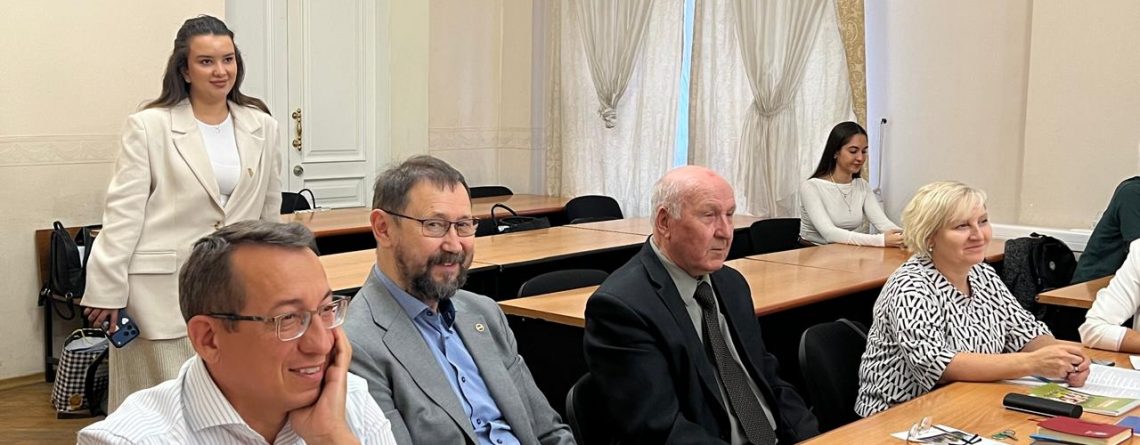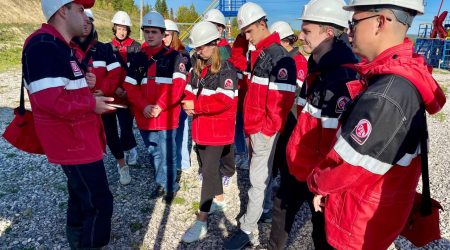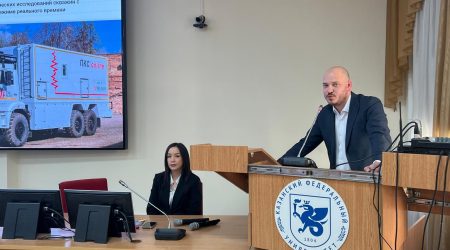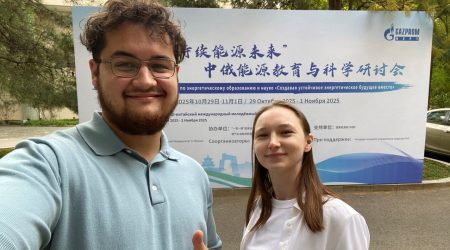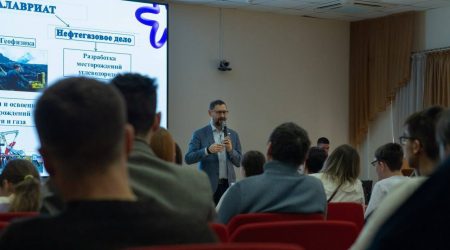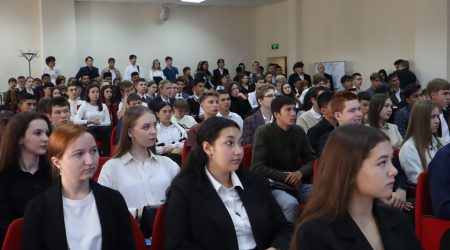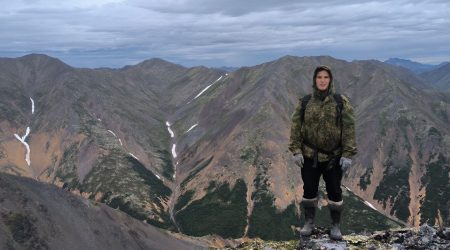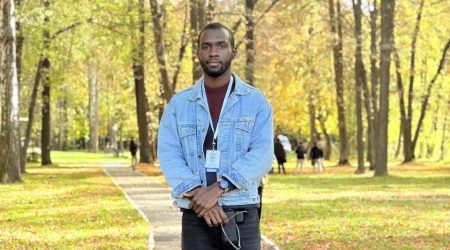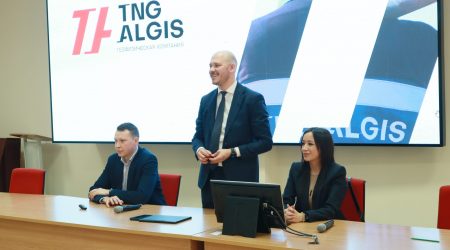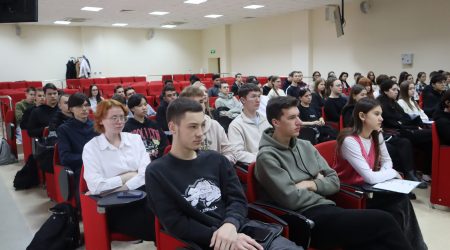1st Roundtable Discussion on Geographical, Geological and Ecological Education: A Look into the Future held at KFU
The event, organized jointly with the Ministry of Education and Science of the Republic of Tatarstan and the Education Department of the Kazan Executive Committee, was attended by Danis Nurgaliev, Vice-Rector for Earth Sciences; Ruslan Ulengov, Chair of the Department of Theory and Methodology of Geographical and Environmental Education; Ilgizar Gaysin, Professor of the same department and Head of the Kazan Regional Office of the Interregional Association of Geography Teachers of Russia; Zulfiya Sadykova, Methodologist at the Department of Education of Kazan; and local school teachers, lecturers, and students.
Welcoming the roundtable participants, Danis Nurgaliev said that the Department of Theory and Methodology of Geographical and Environmental Education and the Department of Geography and Cartography had recently joined our Institute. He noted the close connection between geography and geology and said that it is important for geography teachers to travel extensively and see firsthand the places they teach students about, so that their lessons are engaging. “Geography is not only a very interesting subject, but also an important part of human culture,” he said. “Everyone should know what is located on Earth and where. I think the most enjoyable thing in life is traveling.”
According to the vice-rector, a distinctive feature of Tatarstan geographers could be their strong geological background.
“We need to ensure that geographers studying at KFU can visit, for example, during practical training, places of geological interest,” he emphasized.
Dr. Nurgaliev stated that he is a supporter of teaching geology in schools.
Ilgizar Gaysin reported that KFU often receives requests from school principals asking for help finding geography teachers. Students respond to their requests and work in schools in their free time.
“We decided to hold a roundtable discussion to find out what challenges young geography and ecology teachers face. This is necessary to improve the teaching methods of these subjects. It’s encouraging that many students are both doing well academically and enjoying working at school,” he shared. “I want to say that I support the idea of teaching geology in schools and lyceums. I think it would be a good idea to introduce this subject as an elective for students in grades 8 and 9 who want to pursue natural science majors.”
The students present at the meeting took turns talking about the schools where they teach, showing presentations and videos about their teaching careers.
According to Irina Shlyamina, a geography teacher at School No. 93 of Kazan, young teachers are needed like air at the school.
“Don’t think of yourself as inexperienced; you have experience, but it’s different. We not only teach you, but we also learn from you,” she said, addressing the students.
Then, at the roundtable, the challenges faced by young teachers were discussed, and mentoring was discussed.
“Teachers who have been working at the school for many years shared their experiences with the younger generation—senior students who are new to teaching. There are over 20 such students in our department. Our goal is to help them overcome these challenges so that they remain at the school after graduating. This is crucial, as we have a shortage of geography teachers,” said Albina Khayaleeva, Associate Professor of the Department of Theory and Methodology of Geographical and Environmental Education, after the event.

